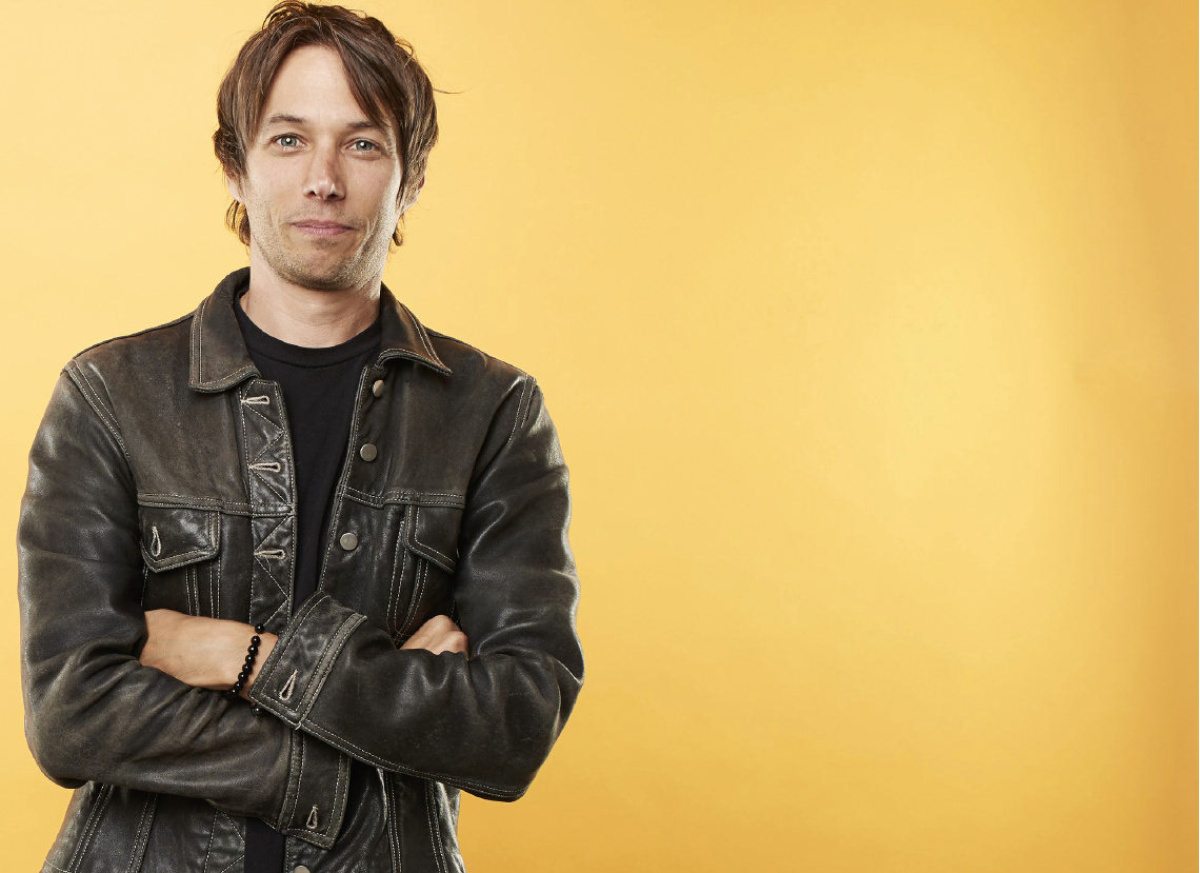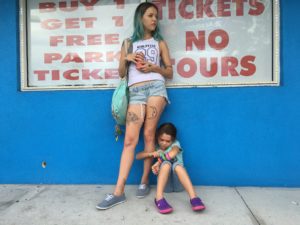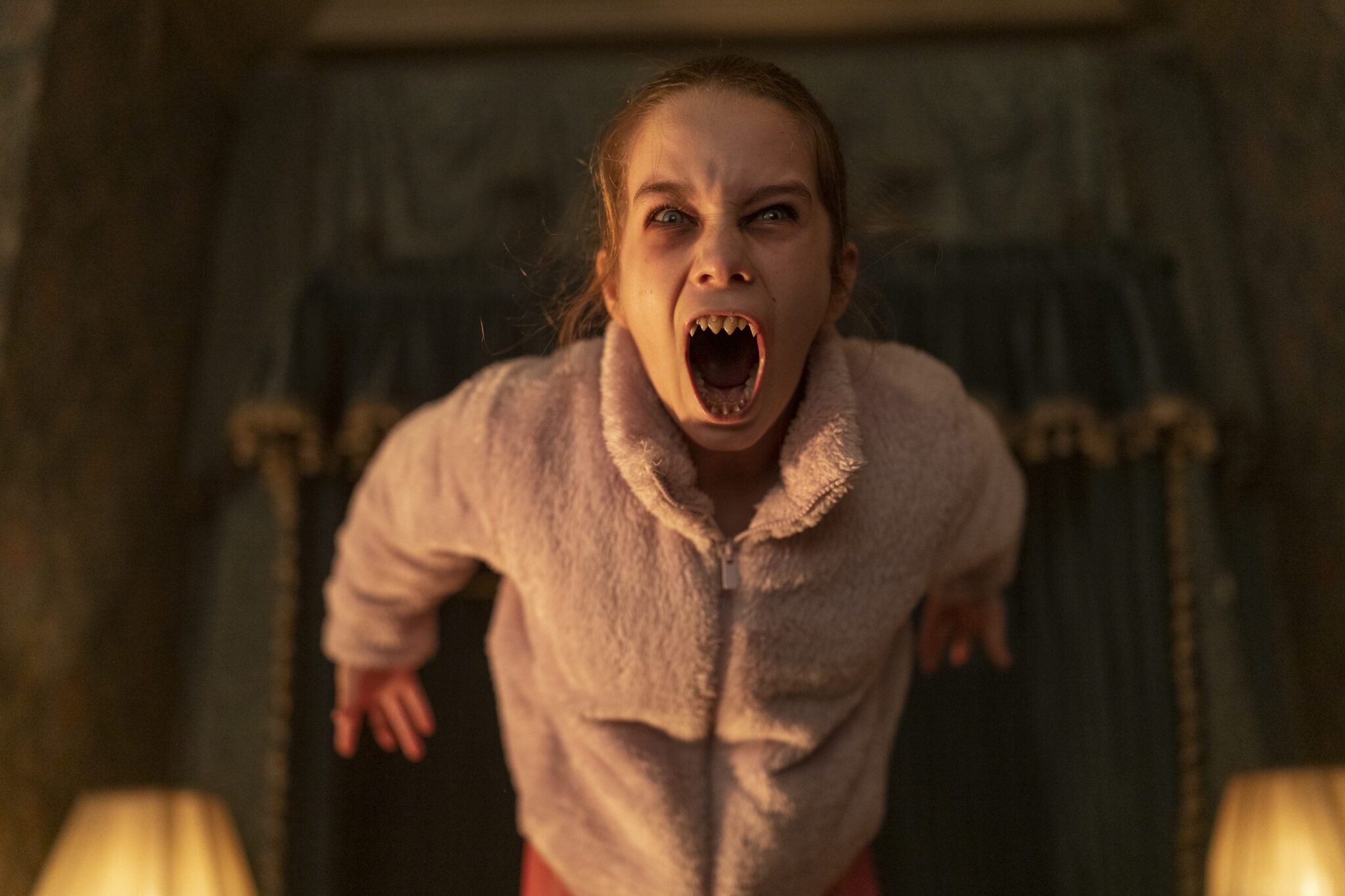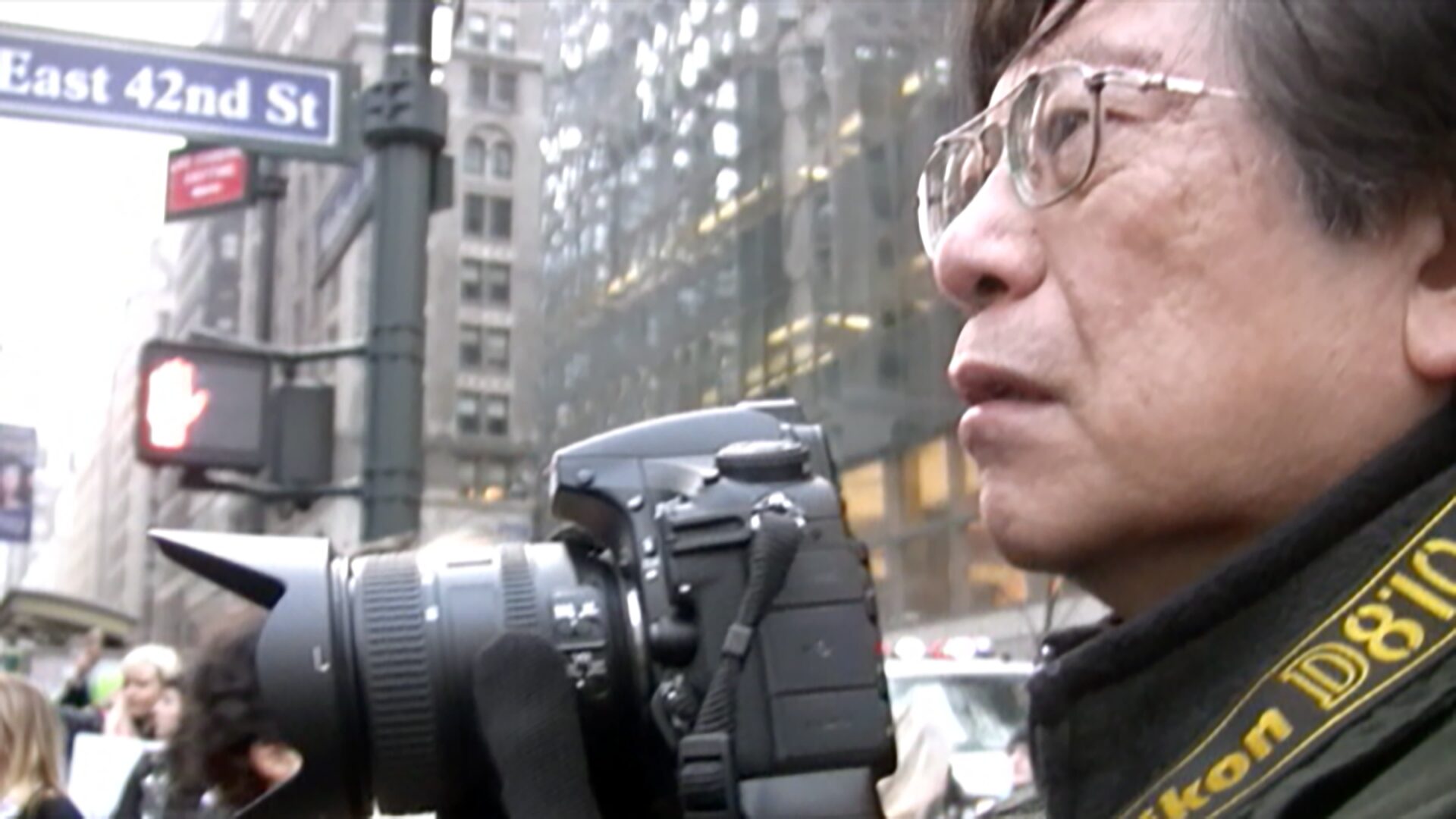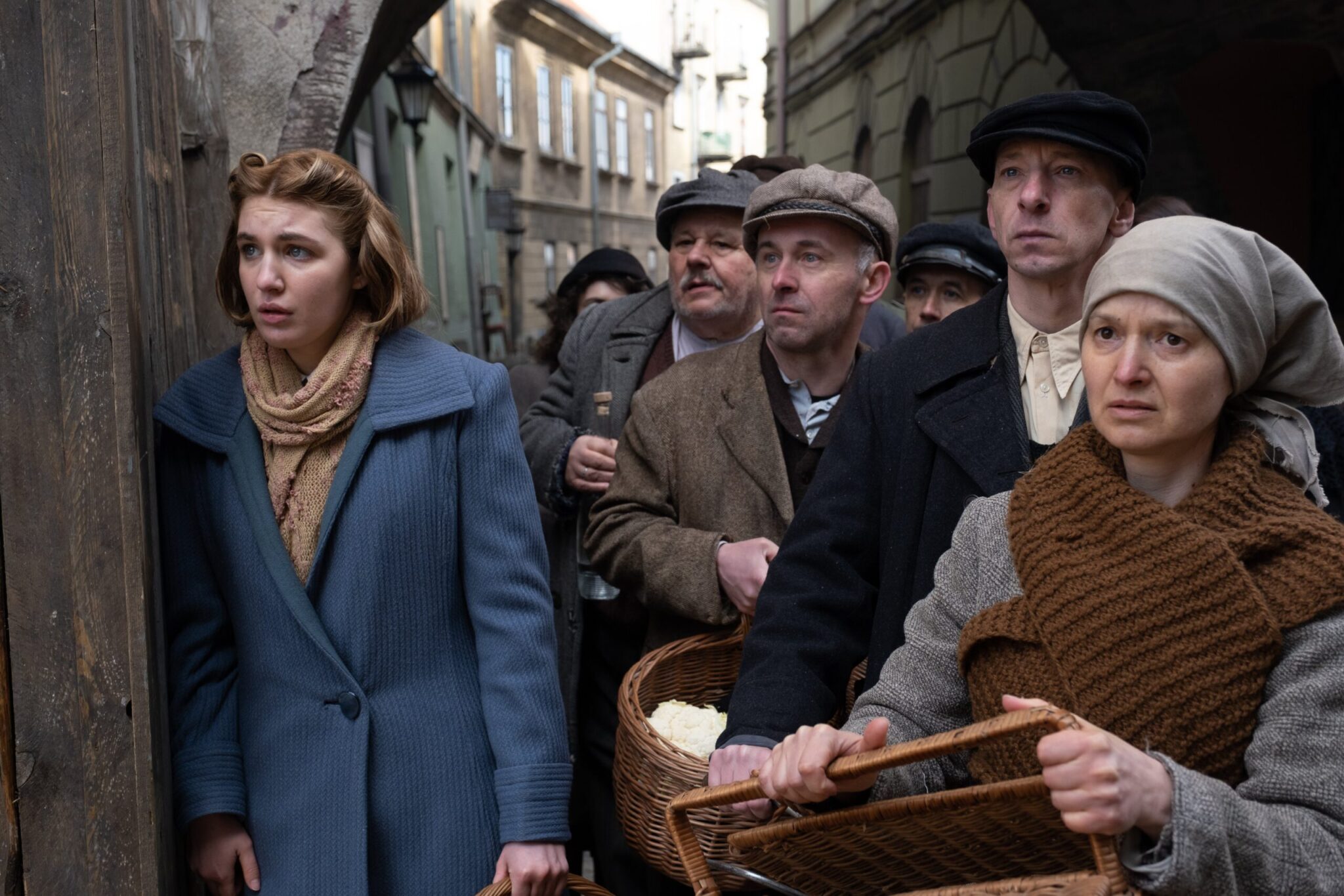Directed by Sean Baker, The Florida Project tells the story of 6-year-old Moonie (Brooklynn Prince) and her relationship with her young and impoverished mother Halley (Bria Vinaite). However, pulling back the camera, the film also shines a light on the lives of the ?hidden homeless? outside Orlando, Florida. Having no permanent address and residing in local motels, these homeless individuals and families struggle to survive from week to week. Because the issue is rarely spoken of in the public eye, Baker says that he was completely unaware of this problem.
?My co-screenwriter, Chris Bergoch, brought this issue to my attention [and] He knows what I?m looking for,? he recalls. ?This is our third time collaborating together on a screenplay?? I had no idea about the issue of the hidden homeless. I hadn?t even heard that term before and he was showing me articles about how there were families living with children living in budget motels right outside the parks in the tourist capital of the world, Orlando, Florida. We started doing more research and realized it was a national problem:? Boston, San Bernadino, Boston, etc. These are basically families who are technically homeless because they can?t secure permanent housing? They?re literally one step away from being on the streets so I wanted to explore that in the area that Chris showed me, in Kissimmee in Orlando, because of that very sad juxtaposition of homeless children living outside the place that we associate most with children.? The happiest place on Earth.??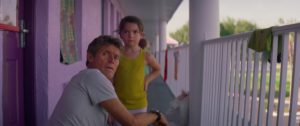
?In that way, [we hope that] the audience will pick up on the fact that, if this could happen right here, it could happen anywhere.?
Having spent a great deal of time with the families that live in these Florida hotels, Baker feels strongly that many of them have been driven into these situations as a direct result of the financial crisis of nearly a decade ago.
?There?s a plethora of reasons why they?ve fallen into the situation that they?re in,? he argues. ?Someone asked me who the villain is in the film. I think they were baiting me to point at the corporations or the new administration. But I was like, you know, there are two villains:? the recession of ?08 followed by the housing crisis that continued right after it. It had an effect that continues to this day. The way that it affected families, individuals, local businesses, local governments and even corporations. People are still living in these situations so it?s something that I felt was an important enough issue that had not really had a light shined on it and this was my way of doing that.?
While hardly new to the independent film industry, Baker is perhaps best known for his previous directorial effort, Tangerine.? In fact, he acknowledges that it was the breakout success of Tangerine that helped pave the way for The Florida Project to become a reality.
?This actually came before Tangerine,? he says. ?We?d been trying to get money to make this for a while, close to six years perhaps.? We were looking for money at the time Beasts of the Southern Wild came out so we thought it might be a little too close which might have been why it was so difficult to get funding.? And then, I made Tangerine and that opened doors for us.?
Though some might be frustrated by these delays, Baker believes that they actually benefitted Project by allowing all the proper elements to fall into place.
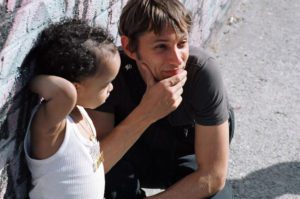 According to Baker, ?Some people talk about serendipity or ?things that are supposed to happen? but, if we made this film six years ago when we initially wanted to, Brooklyn [Prince] was only 1 years old. Things happen for a reason and so I?m really happy it took this long. Over the years that we were thinking about it, I think my vision became stronger with it.?
According to Baker, ?Some people talk about serendipity or ?things that are supposed to happen? but, if we made this film six years ago when we initially wanted to, Brooklyn [Prince] was only 1 years old. Things happen for a reason and so I?m really happy it took this long. Over the years that we were thinking about it, I think my vision became stronger with it.?
Despite their vast differences, Baker also recognizes a relationship between both Tangerine and The Florida Project through their use of style and theme.
?Without having made Tangerine first, it would be a very different movie because of that style we used [in Tangerine] where we went with comedy first and foremost to deliver the message, that dictated the way we made this film,? he reflects. ?I think we?re telling a universal story in a community that not many people know about or have been underrepresented in film and television. I think that might be the common thing and [of course], the stylistic approach is where the commonality is.?
Through his use of humour within the film, Baker manages to bring a sense of light to an otherwise dark situation. By focusing the narrative through Moonie?s eyes, he allows the characters in the film to reclaim a form of innocence that seems infectious.
?It is very bleak, especially for an adult in full consciousness,? he notes. ?That?s one of the many reasons that we decided to focus on children because children are children, no matter where they are or what sort of situation they?re in.? There?s still trying.? There?s still that sense of wonderment.? They use their imagination to make the best of the situation they?re in and that?s what we were trying to show.? Even though this girl lived right outside of these parks and the Magic Kingdom and these amusement rides, they were inaccessible to her yet she was able to turn every day into that.? She was able to turn the parking lot into an nice little amusement park or visiting the cow pasture in the back of the motel was her way of going to the safari.?
Ultimately, however, Baker believes that Moonie?s relationship with her mother, Halley remains the foundation of hope for her in the midst of these painful situations.
?There was a way that this little girl was always able to make the best of things and it was with the help of her mother. Her mother, who comes across as? rough, aggressive, but there is a real love?a maternal love?but she is doing what she can do to always keep her child?s spirits up and make the most of it. Always keeping a smile on her daughter?s face and that?s what I saw on the faces of many of the residents there and I wanted to capture.?
As for the actual residents in these Florida motels, Baker feels that genuine hope exists. With an overwhelming response of support from businesses and local administration, he has noticed a difference in these communities in recent years.
?As far as hope in more realistic terms, all I can say is this:? I do see a change,? he states. ?I do see agencies in the area, non-profits, philanthropists, the local government all working together to try to eradicate homelessness in that area.? Even Disney itself has contributed.? In one of the largest charitable contributions by the private sector to eradicated homelessness ever, they gave half a million dollars to the towards the Homeless Impact Fund in Central Florida. So, everyone is trying and that I see as hope.?
The Florida Project is in select theatres now.

